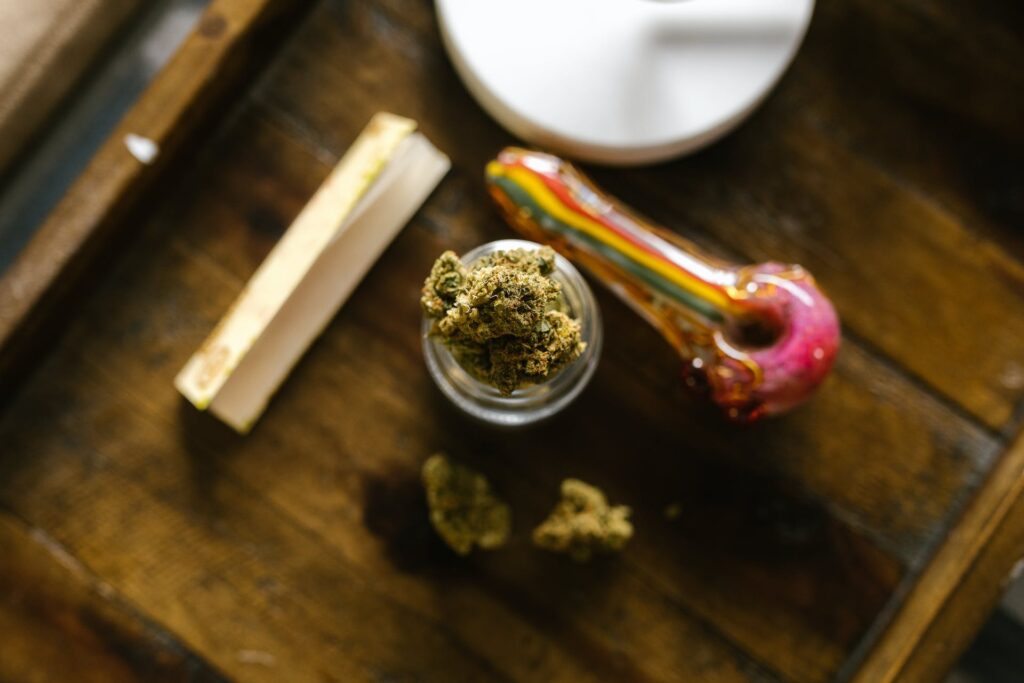Should Recreational Thailand Weed Stay Legal?
Everyone I know hopes that recreational Thailand weed stays legal for the masses. In the midst of political uncertainty and public concern, Thailand finds itself at a crossroads regarding the legal status of recreational cannabis. As different political parties champion their own stances, the question remains: should recreational weed stay legal?
This article delves into the implications and challenges of maintaining its legality, exploring the blurry line between medical cannabis and recreational use.
With a focus on objective analysis, it aims to provide a comprehensive overview of the considerations surrounding the future of recreational Thailand weed.
Recreational Thailand Weed Legalities: Key Takeaways
– The legal status of recreational Thailand weed is currently undefined due to the inability of the legislature to pass a marijuana code bill.
– Different political parties have different stances on recreational cannabis, with some supporting medical use only and others advocating for its inclusion under strict regulations.
– Keeping recreational cannabis legal in Thailand has potential benefits such as supporting the growing cannabis industry, preventing a black market, and allowing for the imposition of strict regulations for responsible use.
– However, there are potential drawbacks to recreational cannabis legalization, including the challenge of enforcing strict regulations and the need to balance medical and recreational use to ensure proper control and prevent negative impacts on public health.
The Legal Status of Cannabis in Thailand
Currently, the legal status of Thailand weed remains uncertain as the legislature has yet to pass a marijuana code bill, leaving a regulatory vacuum that is being widely discussed. This uncertainty has led to debates about the impact of cannabis tourism in Thailand and the role of public opinion in shaping cannabis policy.
The potential for cannabis tourism to boost the economy and attract tourists is a consideration for policymakers. Additionally, public opinion plays a crucial role in shaping cannabis policy, as parties capitalize on public concern over legalization in their campaigns. The Bhumjaithai Party, for example, emphasized medical and commercial use in their cannabis policy.
Different political parties have different stances on the issue, with some supporting medical use only and others advocating for the inclusion of recreational use under strict regulations. Ultimately, the legal status of Thailand weed will be influenced by public opinion and its potential impact on tourism and the economy.
Political Parties and Their Stances on Cannabis Legalization
The Bhumjaithai Party emphasizes medical and commercial use of Thailand weed. Other political parties have varying stances. Some support medical use only, while others advocate for the inclusion of recreational use under strict regulations.
The political party positions on cannabis legalization in Thailand have become a significant topic of discussion. Public opinion on cannabis legalization has also played a role in shaping the discourse.
Some argue that the strict regulation of recreational use can help prevent the formation of a black market and ensure responsible usage. Others express concerns about the potential negative impacts on public health and the need for responsible use.
The upcoming election will likely determine the future of cannabis in Thailand. It is crucial to consider the potential benefits and drawbacks of both medical and recreational use before making a final decision.
Striking the right balance between medical and recreational use is key in the evolving Thailand weed landscape.
Enforcing Strict Regulations in the Blurry Line Between Medical and Recreational Use
Frequently, enforcing strict regulations becomes challenging in navigating the blurry line between medical and recreational use of Thailand weed. The challenges in regulation enforcement arise due to the following factors:
– Lack of clear distinction: Differentiating between medical and recreational use of cannabis can be difficult, as the boundaries between the two can be blurry. This makes it challenging to establish and enforce specific regulations for each category.
– Varying perspectives: There are differing opinions on the extent of regulations needed for cannabis use. Some argue for strict regulations to ensure public safety, while others advocate for more relaxed rules to support the growing cannabis industry.
– Limited resources: Enforcing strict regulations requires adequate resources, including manpower and funding. Striking a balance between regulation enforcement and other law enforcement priorities can be challenging.
Navigating these challenges requires careful consideration and collaboration among policymakers, industry stakeholders, and the public to ensure the effective regulation of Thailand weed use.
Economic Benefits of Maintaining Recreational Cannabis Legalization
To fully understand the economic benefits of maintaining recreational cannabis legalization, it is essential to examine the impact it has on job creation, tax revenue, and tourism revenue.
The legalization of recreational cannabis has the potential to create numerous job opportunities in the industry, from cultivation and production to retail and distribution. This can contribute to the growth of the economy by providing employment and generating income.
Additionally, the taxation of Thailand weed sales can result in substantial tax revenue for governments, which can be allocated towards public services and infrastructure development.
Furthermore, the availability of recreational cannabis can attract tourists, leading to an increase in tourism revenue.
However, it is important to also address public health concerns associated with recreational cannabis use, such as addiction and mental health issues. Striking a balance between economic benefits and public health considerations is crucial in the ongoing discussion surrounding recreational cannabis legalization of Thailand weed.
Preventing the Formation of a Black Market Through Legal Recreational Use
By legalizing recreational use of Thailand weed and implementing strict regulations, the formation of a black market can be effectively prevented. This approach has several benefits:
– Transparency: Legalizing recreational use allows for proper tracking and regulation of the cannabis market. This transparency makes it easier to monitor production, distribution, and sales, reducing the potential for illegal activities.
– Revenue Generation: Legalizing recreational cannabis creates a legitimate industry that can contribute to the economy through taxes and job creation. This revenue can be used for public services and infrastructure development.
– Consumer Safety: Strict regulations ensure that cannabis products meet quality standards and are free from harmful contaminants. Legalization also allows for the implementation of age restrictions and responsible use guidelines, protecting public health and safety.
Imposing Age Restrictions and Regulations for Responsible Thailand weed Use
Strict age restrictions and regulations must be imposed to ensure responsible use of recreational Thailand weed. Implementing age restrictions and responsible regulations for recreational cannabis use is crucial in evaluating the impact of recreational cannabis legalization on public health and abuse prevention.
Age restrictions can help prevent underage individuals from accessing and using cannabis, reducing the potential risks associated with early exposure. Additionally, responsible regulations can ensure that the production, distribution, and consumption of recreational cannabis are closely monitored and controlled.
This can help prevent abuse and misuse, as well as minimize potential negative impacts on public health. By enforcing strict age restrictions and regulations, policymakers can strike a balance between allowing recreational cannabis use and protecting the well-being of individuals and communities.

Responsible Vendors and Consumers Advocating for Stricter Regulations
The current discussion topic revolves around responsible vendors and consumers advocating for stricter regulations in the recreational cannabis industry. This topic is of great importance as it addresses the need to ensure the prevention of abuse and promote responsible use of cannabis.
The following are three key points to consider in this Thailand weed discussion:
– Stricter regulations for responsible use: Advocates believe that implementing stricter regulations will help maintain control over the recreational cannabis market and ensure that it is used responsibly.
– Ensuring prevention of abuse: By enforcing stricter regulations, it becomes easier to identify and address cases of abuse, protecting individuals from potential harm and promoting a safer environment for all cannabis users.
– Balancing regulation and access: While it is important to have regulations in place, it is equally important to strike a balance that allows for access to cannabis for those who benefit from its use, such as medical patients, while still preventing abuse in the recreational market.
Balancing the Growing Cannabis Industry and the Public Health Concerns
In order to address the public health concerns associated with the growing Thailand weed industry, it is essential to strike a balance between industry growth and implementing effective regulations.
The legalization of recreational Thailand weed has raised questions about its potential impact on public health and the economy. On one hand, maintaining legality supports the growing cannabis industry and contributes positively to the economy. It prevents the formation of a black market and allows for better control and regulation.
On the other hand, there is a blurry line between medical and recreational use, making it difficult to enforce strict regulations. Public health concerns arise if cannabis is not properly regulated, leading to potential negative impacts.
Therefore, it is important to find a middle ground that ensures responsible use, protects public health, and supports the economic implications of the cannabis industry.
Potential Drawbacks and Negative Impacts of Recreational Cannabis Legalization
One potential drawback of recreational Thailand weed legalization is the increase in drug dependency or addiction rates, as proper control and regulation may be challenging. This can lead to negative impacts on public health if not properly addressed.
To prevent abuse and ensure proper control, several measures can be implemented:
– Implement strict age restrictions to prevent underage use and protect vulnerable populations.
– Establish comprehensive education and awareness programs to promote responsible use and inform individuals about the potential risks and consequences of cannabis consumption.
– Implement robust monitoring and enforcement mechanisms to ensure compliance with regulations and prevent the diversion of cannabis to the illicit market.
Striking the Right Balance Between Medical and Recreational Use in Thailand’s Future
To achieve a harmonious equilibrium, policymakers must carefully navigate the complex landscape of medical and recreational cannabis use in Thailand’s future. Balancing the needs of both medical and recreational users presents numerous challenges in enforcing regulations. The blurry line between medical and recreational Thailand weed use makes it difficult to establish clear guidelines and enforce strict controls.
However, maintaining the legality of recreational cannabis can support the growing cannabis industry and contribute positively to Thailand’s economy. It also prevents the formation of a black market, allowing for better control and regulation. Strict age restrictions and regulations can be imposed to ensure responsible use and protect public health.
It is important for policymakers to consider the potential benefits and drawbacks of both medical and recreational use in order to strike the right balance and ensure proper control in the evolving cannabis landscape.
Final Thoughts on Recreational Thailand Weed Use
In conclusion, the future of recreational Thailand weed use hangs in the balance as political parties debate its legal status. Enforcing strict regulations in the blurry line between medical and recreational use poses significant challenges.
However, maintaining recreational cannabis legalization could bring economic benefits, prevent the formation of a black market, and promote responsible use.
Striking the right balance between medical and recreational use is crucial for Thailand’s future. As the saying goes, ‘In the midst of chaos, there is opportunity.’


